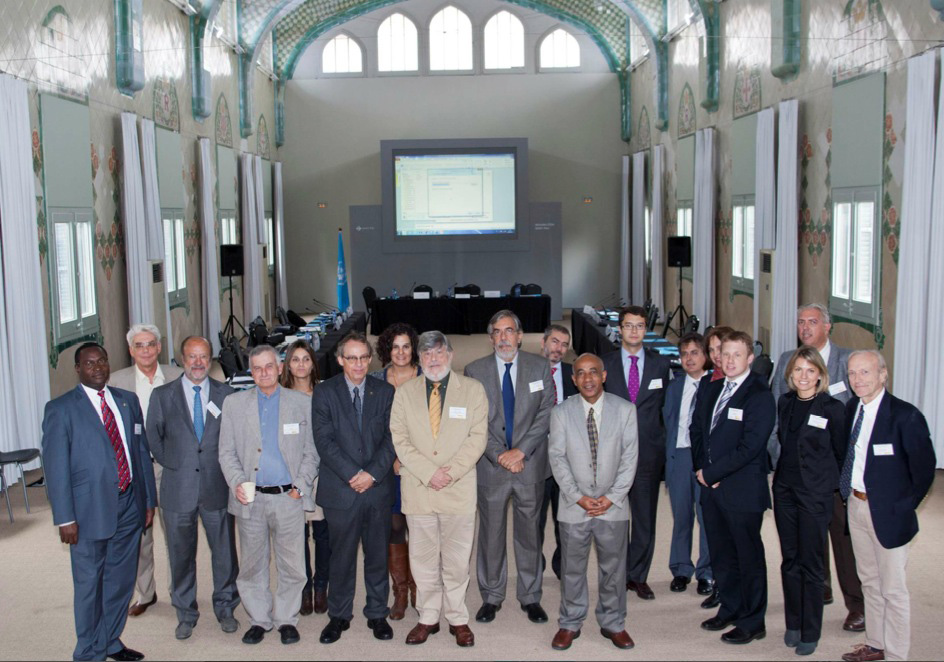
Giovanna Carnevalli (second from right) at the Learning Cities Roundtable hosted by UN-HABITAT
This October, the master’s program director Giovanna Carnevali participated in the Learning Cities Roundtable, a discussion organized in collaboration with UN-HABITAT and the Spanish Secretariat of State for Housing and Urban Affairs, Ministry of Public Works, the final report of which was released earlier this month.
The objective of the roundtable discussion was to understand the mechanisms of current practices in city learning and knowledge-sharing, to compare the modalities of different networks and actors in the field, and to foster collaboration between them in order to scale up learning cities initiatives for the benefit of cities in developing countries. The discussion gathered a range of these key actors from different backgrounds; namely city networks, universities, training institutions, private sector and national and local authorities.
Giovanna Carnevali, the program director of the Master International Cooperation: Emergency Sustainable Architecture participated in the roundtable discussion, emphasizing the role of universities as facilitators of city learning and practice experience.
A few excerpts from the discussion and final report:
“Today 6 out of 10 urban residents live in slum-like conditions and an average of 5 million people will be added to the African slum population every year. But cities are also one of the core actors in changing such a situation and have the potential to harness this demographic shift for growth, poverty alleviation, and a better climate for all; however to address the constantly changing complexity that cities are facing requires continual learning at all levels of the urban space and amongst multiple actors.”
Felix Arias Goytre, Director General of Secretariat of State for Housing and Urban Policy, “noted that we should explore the concept of a ‘3rd industrial revolution’ that is based on ICTs and information – the potential of which he felt have not been fully exploited.”
In his first time talking on behalf of city of Barcelona at an event that hosted by the United Nations, Antoni Vives, Deputy Mayor for the Urban Habitat “stressed the need to tear down the walls of discipline that surround the city and recognized UN-HABITAT’s efforts to this end” and “noted his desire that Barcelona be formed by productive, mixed use, self-sufficient neighborhoods, within a broader context of smart cities.”
You can consult the entire Learning Cities Roundtable Final Report (07.12.2011) in this pdf.

